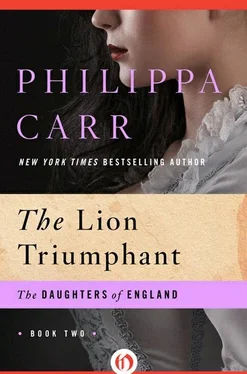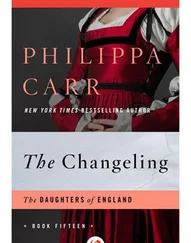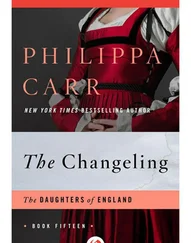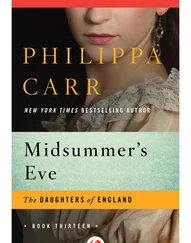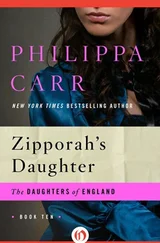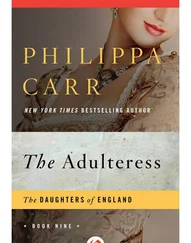Why should it all come back so vividly because of a meeting on the Hoe with that insolent sailor?
I must explain how I came to be in Plymouth—this southwest corner of England when my home was in the southeast only a few miles from London itself.
I was born in St. Bruno’s Abbey—a strange place in which to be born, and when I look back on my beginnings they were clearly anything but orthodox. I was lighthearted, careless, not in the least serious like Honey, whom I had always thought of as my sister. There we were in our childhood living in a monastery, which was no monastery, with that ambience of mysticism about us. That we were unaware of this in our early years was due to my mother, who was so normal, serene, comforting—all that a mother should be. I told Carey once that when we had our children I would be to them what my mother had been to me.
But as I grew older I became aware of the tension between my parents. Sometimes I think they hated each other. I sensed that my mother wanted a husband who was kind and ordinary, rather like Carey’s Uncle Rupert, who had never married and I suspected loved her. As for my father, I did not understand him at all, but I did believe that at times he hated my mother. There was some reason for it which I could not understand. Perhaps it was because he was guilty. Ours was an uneasy household, but I was not as much aware of it as Honey was. It was easy for Honey; Honey’s emotions were less complicated than mine. She was jealous because she believed my mother loved me more than she loved her, which was natural because I was her own child. Honey loved my mother possessively; she didn’t want to share her; and she hated my father. She knew exactly where her loyalties lay. It wasn’t so easy with me. I wondered whether she was as fiercely possessive of her husband, Edward, as she had been of my mother. Perhaps it was different with a husband. I was sure I would have been as eager that all Carey’s love and thoughts should have been for me.
Honey had made a grand marriage—to everyone’s amazement, although they were ready to admit that she was just about the most beautiful creature they had ever seen. I had always felt plain by comparison. Honey had beautiful dark blue, almost violet eyes, and her long, thick black lashes made them startling; her hair was dark, too, curling and vital. She was immediately noticed wherever she went. I always felt insignificant beside her, although when she was not there I was quite attractive with my heavy mid-brown hair and green eyes which my mother used to say fitted my name. “You are indeed a little Cat,” she would be fond of pointing out, “with those green eyes, and that heart-shaped face.” I knew that in her eyes I was every bit as beautiful as Honey, but this was a mother looking at her beloved child. However, Edward Ennis, son and heir of Lord Calperton, had fallen in love with Honey and married her when she was seventeen years old on her first appearance in society. Her obscure and humble birth made no difference. Honey had triumphantly achieved that which many a girl richly endowed with worldly goods had failed to do.
My mother’s delight was great, for she must have feared that it might have been difficult to find a husband for Honey. She had expected Lord Calperton to raise all sorts of objections, but Carey’s mother, whom I called Aunt Kate, had swept away any obstacles and she was the sort of woman who usually got her way because although she must have been about thirty-seven years old she had some indestructible charm so that men fell in love with her and Lord Calperton was no exception.
In November of the glorious year 1558, the old Queen had died and everywhere there was great rejoicing because new hope had come to England. We had suffered through Bloody Mary’s reign and because the Abbey was not far from the river and a mile or two away from the Capital the pall of smoke from Smithfield would drift our way when the wind was in a certain quarter. My mother used to feel ill at the sight of it and she would shut the windows and refuse to go out.
When the smoke was no longer visible my mother would go into the garden and gather flowers or fruit or herbs, whatever was in season, and send me with them over to my grandmother’s house, which bordered on the Abbey.
My mother’s stepfather had been burned at the stake as a heretic in the reign of Queen Mary; that was why the fires of Smithfield were particularly poignant to us. But I don’t think my grandmother continued to suffer as much as my mother believed she did. She would always be very interested in what I brought and she would call the twins in to talk to me. Peter and Paul were a year older than I—my mother’s half brothers and therefore my uncles. We were a complicated family. It seemed strange to have uncles a year older than oneself, so we never considered the relationship. I was fond of them both; they were identical twins—always together and looking so alike that few could tell them apart. Peter wanted to go to sea, and as Paul followed Peter in everything he wanted to go too.
When Aunt Kate arrived at the Abbey I would go to my room, lock myself in and stay there until my mother came to persuade me to go down. Then I would do so just to please her. I would sit at my window and look out at the old Abbey church and the monks’ dorter, which my mother was always talking of turning into a buttery; and I remembered how Honey used to tell me that if you listened in the dead of night you heard the chanting of the monks who had lived here long ago and the screams of those who had been tortured and hanged at the gate when King Henry’s men had come to dissolve the monastery. She used to tell me these stories to frighten me because she was jealous on account of the fact that I was my mother’s daughter. I retaliated, though, when I heard rumors about Honey. “You,” I had said, “are a bastard and your mother was a serving girl and your father a murderer of monks.” This was cruel of me because it upset Honey more than anything. It was not so much that she minded being a bastard as not being my mother’s own child. At that time her first possessive love had been centered on my mother.
My nature was to let my temper flare up, to make the most wounding comments I could think of and very soon after hate myself for doing so and try hard to make up for my cruelty. I would say to Honey: “It’s just a tale. It’s not true. And in any case you’re so beautiful that it wouldn’t matter if your father was the devil, people would still love you.” Honey didn’t forgive easily; she went on brooding on insults; she knew that her mother had been a serving woman and that her great-grandmother had been known as a witch. She didn’t mind the latter at all. To have a witch for a great-grandmother gave her some special power. She was always interested in herbs and how they could be used.
Honey came to the Abbey for the Coronation. When I asked my mother if my father would be home by then her face became a mask and it was impossible to know what she was feeling.
She said: “He’ll not be back.”
“You seem so sure,” I replied.
“Yes,” she said firmly, “I am.”
We went to London to see the Queen’s entrance into her Capital in order to take possession of the Tower of London. It was exciting to see her in her chariot with Lord Robert Dudley, one of the handsomest men I had ever seen, riding beside her. He was her Master of Horse and they had, I heard, become acquainted when they were prisoners in the Tower during the reign of the Queen’s sister, Mary. It was thrilling to hear the tower guns boom out and listen to the loyal greetings which were delivered to the young Queen as she rode along. We had taken up our position close to the Tower and we saw her clearly as she rode in.
She was young—about twenty-five years old—with fresh-colored cheeks and reddish hair; she sparkled with vitality; yet there was a great solemnity about her which was very becoming and greatly admired by the people.
Читать дальше
